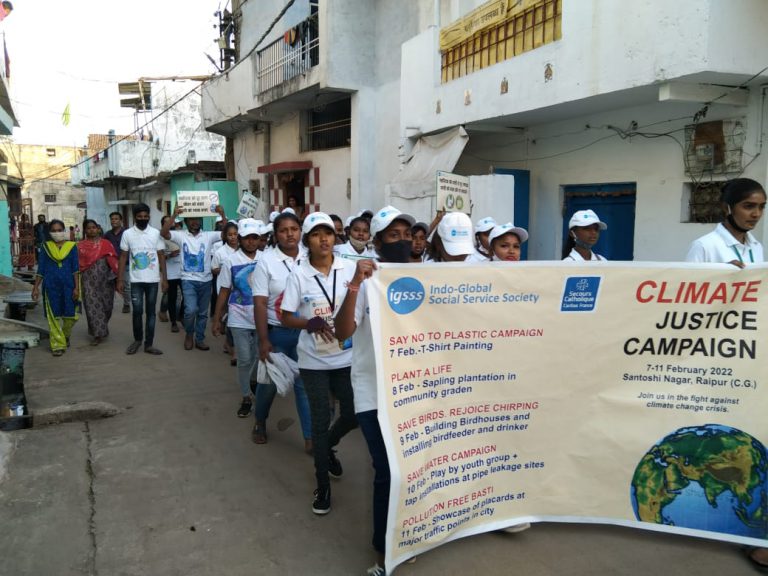Climate Action in Indian cities
Addressing the adverse impact of climate change has become a matter of utmost emergency in the last few decades. The daily life of marginalized and vulnerable people has been deeply affected by the extreme climatic situation. The big metropolitan cities are facing the wrath of climate change much more than the rural areas. This is due to unplanned urbanization and industrialization, continuous migration from villages, overpopulation and many other factors.
IGSSS, under its flagship project Satat Sheher (Sustainable Cities), took up climate change as one of the major issues impacting the urban poor. At present, urban climate change action plans and initiatives are being implemented in 13 cities across the country. The various initiatives aim to build capacities of the urban poor to address climate emergencies in their own capabilities.
Since 2020, several climates change issues have been identified using a participatory climate change matrix tool developed by IGSSS. The tool helps the community in developing climate justice campaign plans at the local level. Street play at transits, signature and poster campaigns, promotions through tablo vehicle, and other sensitization events are followed by the formation of a city-based climate consortium to engage local duty bearers, line department officials, retired bureaucrats and other climate-sensitive actors.
Urban Disaster Risk Reduction (UDRR) is an innovation of IGSSS which prioritizes strengthening the slum community to manage emergencies due to climate change and disaster. Under UDRR, task force teams are formed in the cities. The teams are imparted training on emergency first aid, search & rescue and early warning so that they can minimize risks in pre-during-post disaster through preparedness measures. This innovation has been upscaled and replicated in some of the cities with input from line departments and officials. UDRR helps youth maintain proper humanitarian responses in slums even in emergencies.
The introduction of the Urban Farming model has become highly popular with the community. This model helps to manage turn slum domestic wastes into compost, use small space judiciously for the kitchen gardens, recycle the waste bottle, pots and other materials, source regular vegetables, and generate alternative earnings. It also helps to make the slums green. Urban farming has proved to be very useful, especially during the time of the COVID-19 pandemic and the subsequent lockdown. Apart from this, a big outreach of low-cost rooftop rainwater harvesting model has become quite visible in slums. This addresses water scarcity and groundwater depletion in the cities. Some initiatives are in pipeline for example managing slum wastes in producing alternative energy and vermicompost, strengthening youth in tracking major parameters of slum air, water and sound quality, etc.
IGSSS is also part of an international platform named ‘Urban Transformation’. This platform helps the organization in addressing urban climate emergencies in a bigger aspect through cross-sharing and visibility.
Contributed by: Proshin Ghosh



